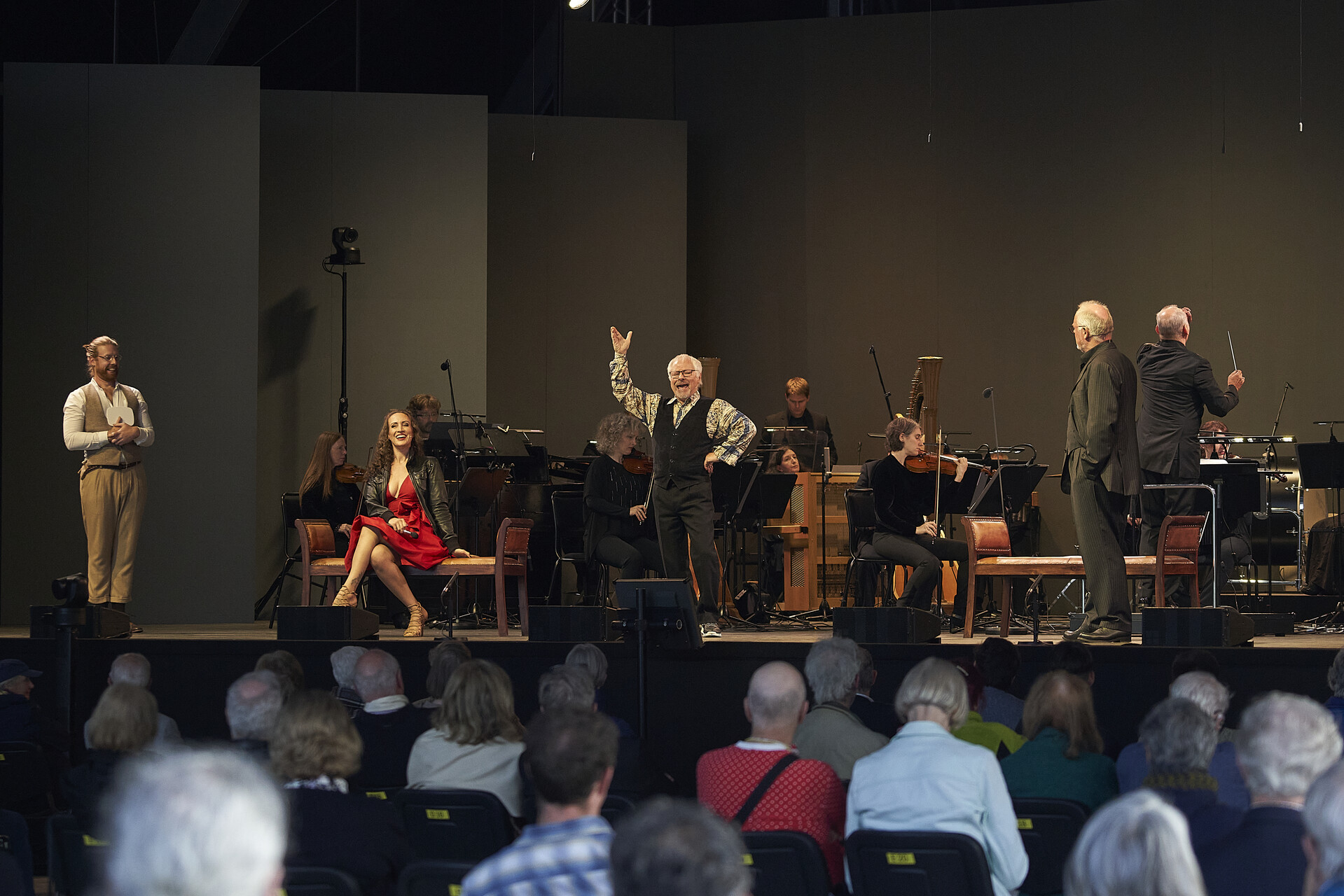The concept of a comedic opera is far from a unique creation, nor is the sort of ballet featuring humorous segments or narrative. However, infusing the two together is refreshingly dynamic in Richard Strauss’ Ariadne auf Naxos, which sees the delicacy of dance and the lustre of opera immerse themselves within a comic setting. Delightfully absurdist, Strauss’ comedic piece erupts to life under Lothar Koenig’s conduction of the Royal Scottish National Orchestra.
When the lord of the kingdom wants to merge the opening night of an opera with the premiere performance of a ballet, sparks ignite; but when the financier of your show asks for something, you do it. While combining these genres with comedy in a concert setting may sound like a cacophony of woe, what transpires is an exceptionally tight production that slashes its elite backdrop and returns music, opera, comedy, and ballet to those it was crafted for and by – the people.
Lead Dorothea Röschmann is a resounding dismissal of any assertions that the pandemic has impacted the quality of the International Festival’s prominence. She is a force majeure soprano who issues a comprehensive sense of command. Her Ariadne is less of the Prima Donna that we are initially led to believe, instead possessing a sense of superiority and luvvie tantrum-throwing that harbours an intimidating woman who will not be overturned by a perceived ‘younger model’. While previous remarks across the production demonstrate the flourishes of young affection and intimacy, Röschmann and David Butt Philip’s Bacchus illustrate the reignition of love in tremendously unexpected places within the ephemeral realms.
The emergence of a new Goddess, of a monstrous rarity, in coloratura soprano Brenda Rae dazzles in a sultry way. Utilising her exceptional talent to draw the colour of her voice into comedic flourishes, Rae becomes the ethereal draw of the production. An understated ruby which at first seeks to seduce and distract from Röschmann, but in essence is the glittering zenith of Ariadne auf Naxos.
Continuing this trifecta of magnificent women is award-winning Scottish singer Catriona Morison whose Composer echoes the frustrations any creative has struggled with in their time. The mezzo clarity is sublime, branching across the venue with a weight that allows the dramatic elements of her voice to echo through the melody. Her frantic, even slapstick, outbursts stand well next to the more tempered delivery of Martin Gantner as the Music Master.
Though initially appearing restrictive, Louisa Muller’s staging commands a depth and range previously underutilised within the Edinburgh Academy Junior School venue. Conducted within the peripheries of the audience, and though in front of a 37-strong orchestra, the slapstick elements never take away from the tinkering notes of the orchestra. Nor do they detract from the throttle inducing percussions which serves so well to amplify the dramatic posturing of Liv Redpath, Claire Barnett-Jones and Soraya Mafi.
Slyly, Strauss’ work undermines the expectant crowds one would associate with the art form, and even more cunningly, it likely flies over their heads. But how to recreate a pinnacle of satirical comedy to maintain and build upon the original sharpness of Strauss’ creation? Perhaps, the best way to champion the piece is not to dramatically revitalise or commodify, but to perfect the edges of what already was – to compress the areas of comedy and draw on the vast wonderment of vocalists under the wing of the nation’s finest musicians. To that end, Ariadne auf Naxos is an overwhelming success.
